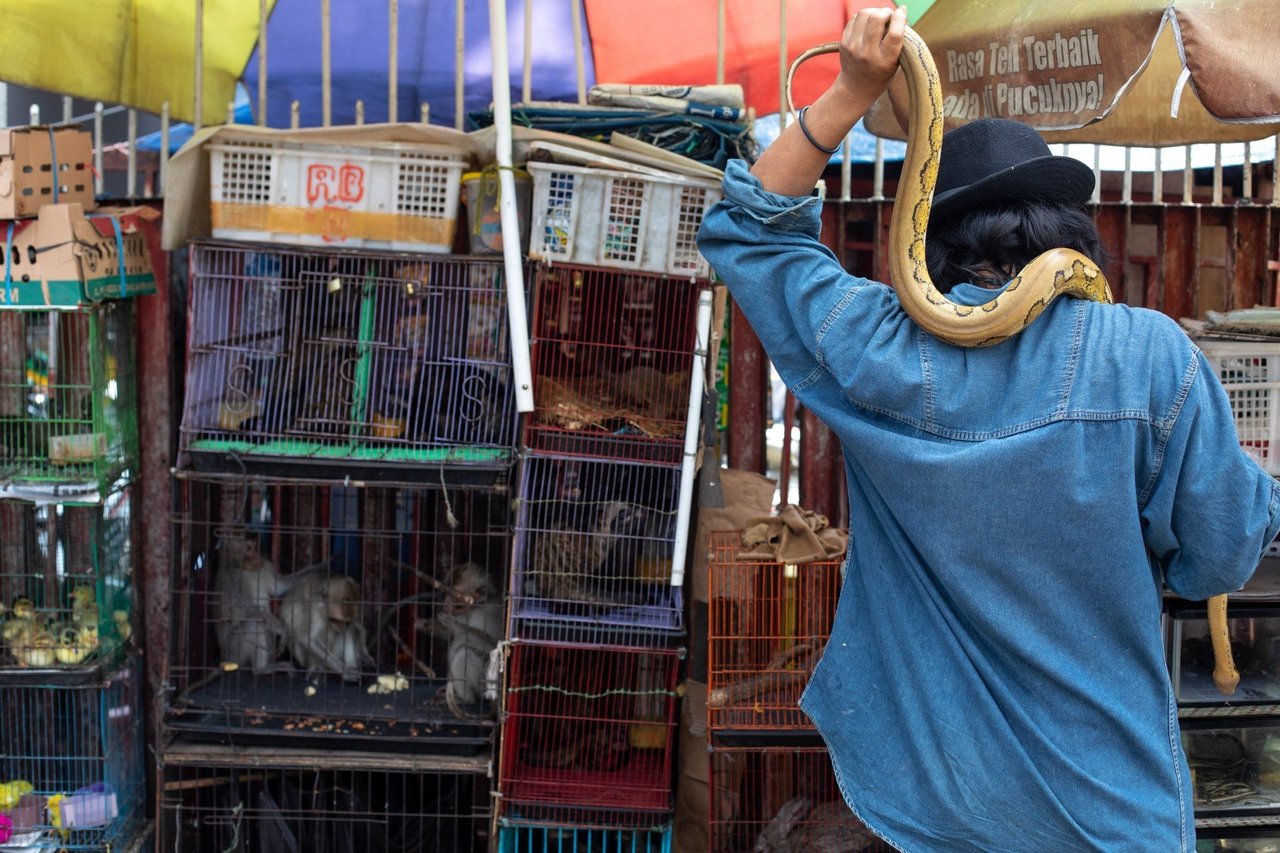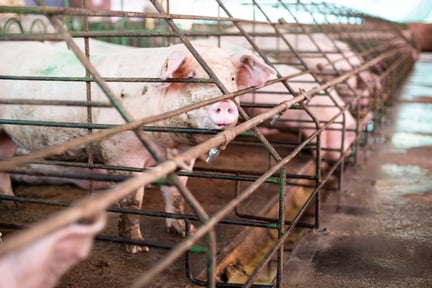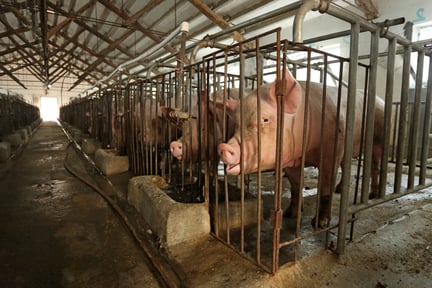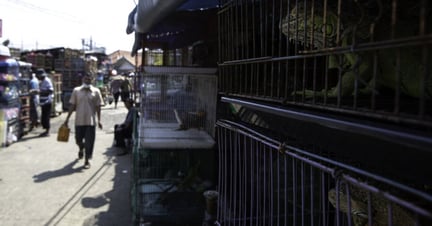Learn more about how we’re all connected
Whether it’s superbugs potentially being created on factory farms, pandemics, or demand for meat contributing to emissions, it’s time to understand that how we treat animals impacts our health.
Superbugs are emerging on factory farms
Antibiotic resistant bacteria — called “superbugs” — are emerging on farms from antibiotic overuse. Those superbugs are entering our food chain and our environment, and when passed to people, make us less able to fight infections.
Intensive farming and the connection to climate change
Intensive animal agriculture has grown to such a scale that the impacts have never been more obvious. Eating less meat and dairy is one of the most meaning things that we can do as individuals to reduce our greenhouse gas emissions.
The wildlife trade and the connection to pandemics
Close contact between captive wild animals and people is a dangerous cocktail. Zoonotic infections can emerge and be spread at every stage of the wildlife trade. This should be of critical concern, as almost 75% of emerging infectious diseases affecting human health originate in wildlife – SARS, Ebola, and now COVID-19.



